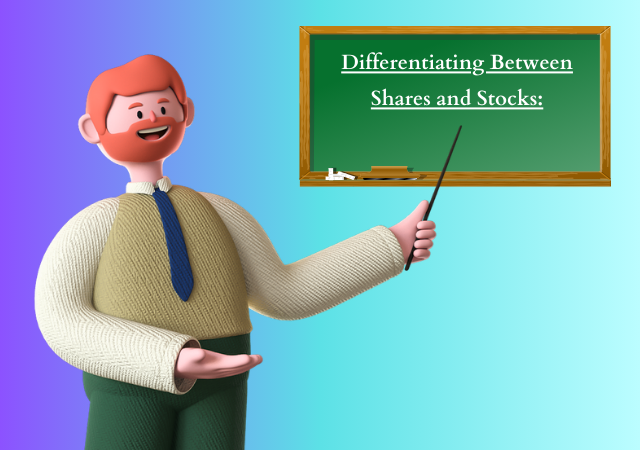Share Market vs. Stock Market: Spot the Odd One Out and Win Big!
Introduction
Welcome, savvy investors and curious minds alike, to a journey of financial discovery! In the vast landscape of investment opportunities, few debates ignite as much intrigue as the comparison between the share market and the stock market. Picture this: you’re navigating the bustling world of finance, seeking to discern between these two seemingly interchangeable terms. But wait – are they truly interchangeable, or is there a hidden distinction waiting to be uncovered? In this exhilarating quest to spot the odd one out, prepare to unravel the mysteries behind these twin pillars of wealth creation.
Join us as we delve deep into the intricate web of financial markets, armed with knowledge and a keen eye for detail. So, buckle up, embrace the thrill of discovery, and get ready to win big in the ultimate game of financial discernment!
Share Market vs. Stock Market: Spot the Odd One Out and Win Big!
Understanding the Share Market:

Let’s kick off our exploration by shedding light on the share market. Often synonymous with the term “stock market,” the share market refers specifically to the marketplace where shares of publicly traded companies are bought and sold. Each share represents a portion of ownership in a company, and investors trade these shares with the expectation of profiting from fluctuations in their prices.
The share market serves as a vital platform for companies to raise capital by issuing shares to investors, thereby facilitating their growth and expansion endeavors.
Exploring the Stock Market:

Now, let’s delve into the broader concept of the stock market. While the terms “share market” and “stock market” are often used interchangeably, the stock market encompasses a wider array of financial instruments beyond just shares. In addition to stocks, the stock market may include other securities such as bonds, exchange-traded funds (ETFs), and derivatives.
Unlike the share market, which focuses solely on shares of individual companies, the stock market provides a platform for trading various types of financial assets, catering to the diverse needs and preferences of investors.
Differentiating Between Shares and Stocks:

To truly grasp the distinction between the share market and the stock market, it’s essential to understand the difference between shares and stocks. While these terms are often used interchangeably, they carry subtle nuances. Shares typically refer to individual units of ownership in a specific company, representing a claim on the company’s assets and earnings.
On the other hand, stocks encompass a broader concept, encompassing shares of multiple companies as well as other financial instruments traded in the stock market. Therefore, while all shares are stocks, not all stocks necessarily refer to shares of individual companies.
Historical Evolution and Global Perspectives:
The evolution of share and stock markets traces back centuries, evolving alongside advancements in finance and technology. From the bustling trading floors of Wall Street to the electronic exchanges of the digital age, these markets have undergone significant transformations over time. Moreover, share and stock markets exist on a global scale, with each country boasting its own unique market dynamics and regulatory frameworks.
Whether it’s the New York Stock Exchange (NYSE), the London Stock Exchange (LSE), or the Tokyo Stock Exchange (TSE), these markets collectively form the backbone of the global economy, driving investment, innovation, and economic growth.
Impact on Investors and Businesses:
The share and stock markets play a pivotal role in shaping the fortunes of investors and businesses alike. For investors, these markets offer unparalleled opportunities to grow their wealth through strategic investments in diverse asset classes. However, they also entail risks, ranging from market volatility to geopolitical uncertainties. Similarly, businesses rely on these markets to raise capital for their operations and expansion initiatives, leveraging investor capital to fuel growth and innovation.
Moreover, the performance of the share and stock markets often serves as a barometer of economic health, reflecting broader trends in consumer sentiment, corporate earnings, and macroeconomic indicators.
Conclusion (Share Market vs. Stock Market: Spot the Odd One Out and Win Big!)
In conclusion, while the share market and stock market may seem interchangeable at first glance, they are distinct entities with unique characteristics and functions. By understanding the differences between these two financial arenas, investors can make more informed decisions and navigate the complexities of the markets with confidence. So, the next time you hear someone refer to the share market or stock market, remember to spot the odd one out and seize the opportunity to win big in the world of investments.

My name is Rohit Vagh and I’m a content writer specializing in fashion and lifestyle. I have three years of experience in this field and have written various articles. My writing style is creative and engaging, and I strive to create content that resonates with my readers. I have a deep passion for fashion and am constantly researching the latest trends and styles to make sure my readers are up to date. I’m excited to continue my career in blogging, and I’m always looking for new opportunities in the fashion and lifestyle space.





